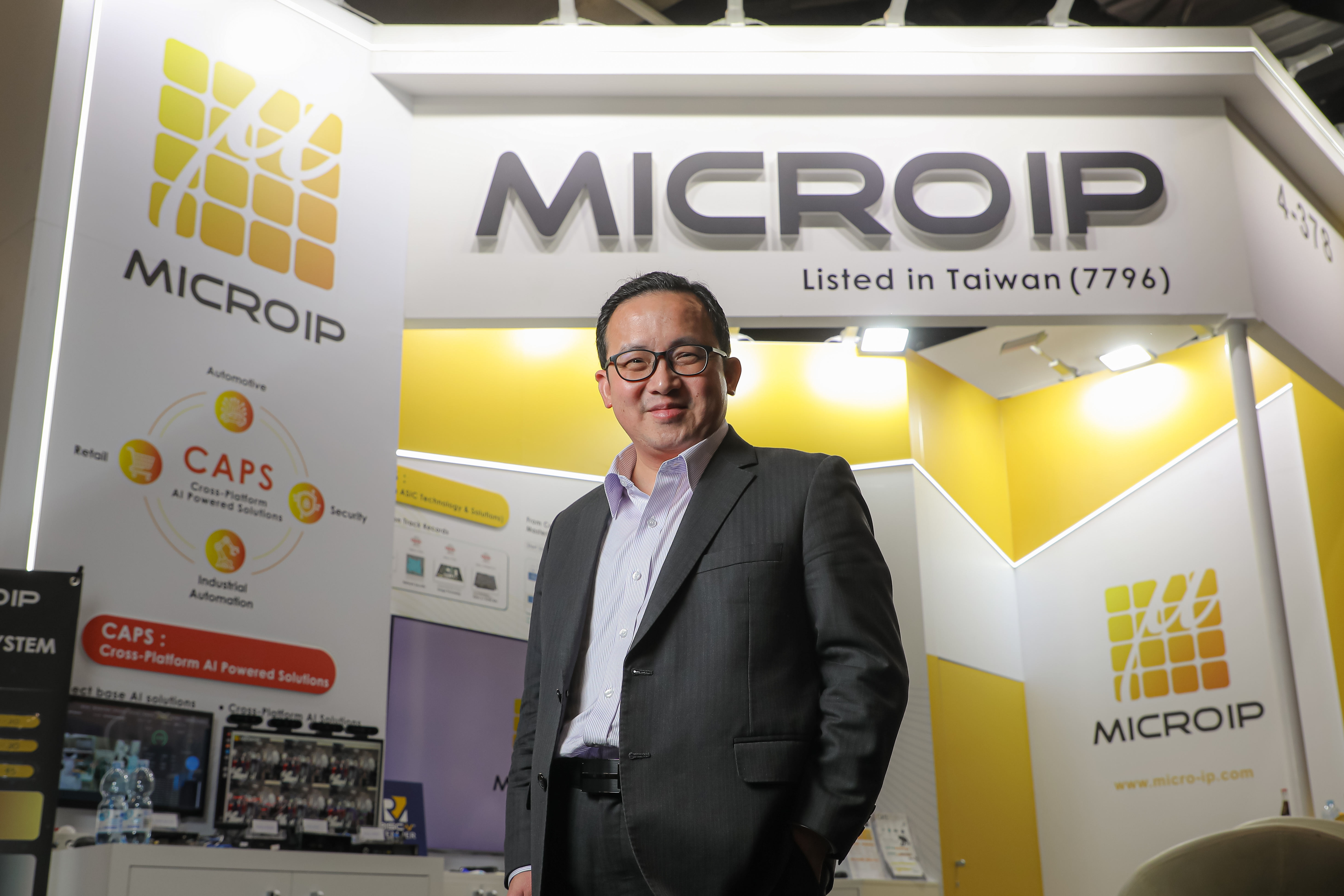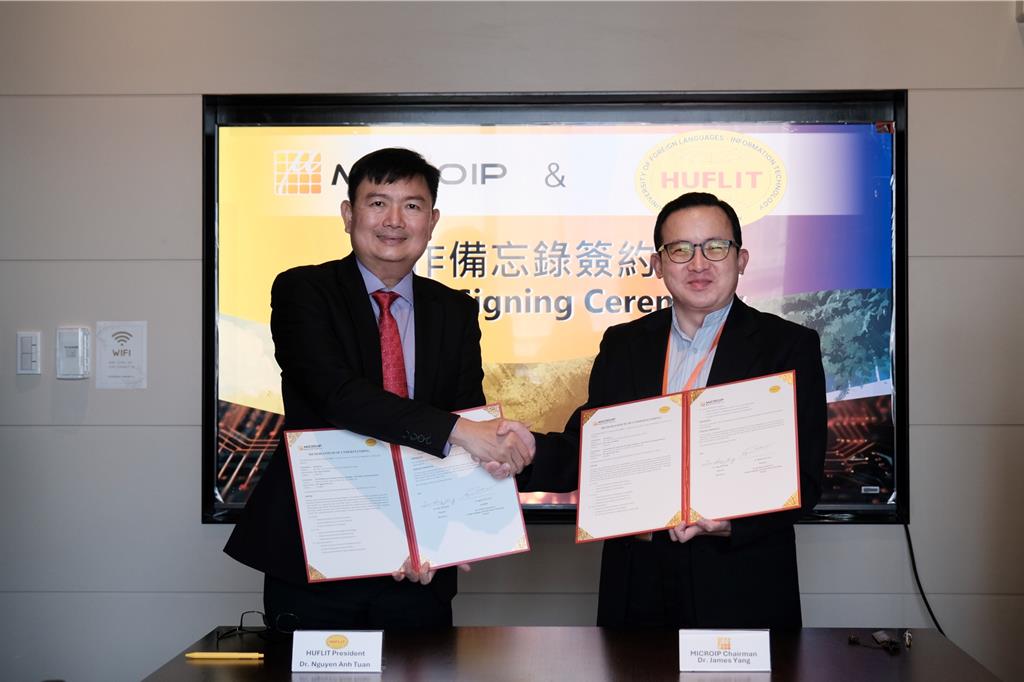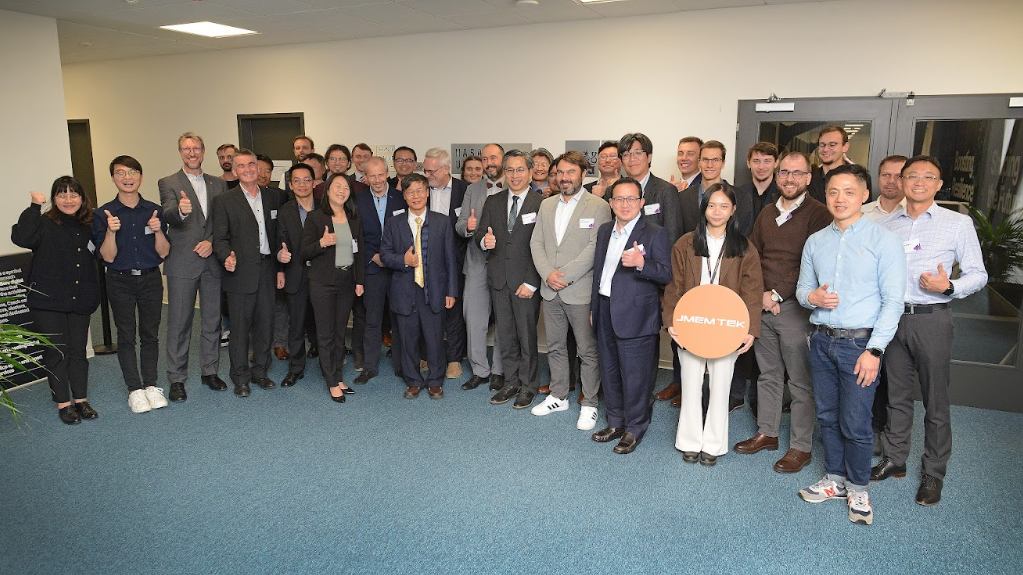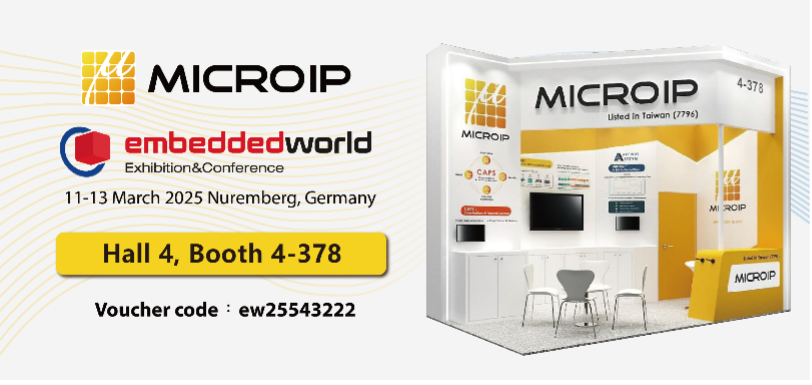Special Thanks to DIGITIMES for the Exclusive Interview!
Taiwanese semiconductor companies are making a strong impact at Embedded World 2025, driving AIoT innovations. This year, alongside global IDM giants and analog IC manufacturers, IC design houses, IP vendors, and ASIC providers are showcasing their integration capabilities, drawing significant attention.
MICROIP is presenting its CATS (Custom ASIC Technology and Solutions) and CAPS (Cross Platform AI Powered Solutions) , delivering energy-efficient, high-performance AIoT technologies. Our cross-platform AI design tools empower businesses to accelerate development and adapt to diverse applications seamlessly.
In the AIoT ecosystem, software-hardware synergy and AI computing platforms are now key drivers. Taiwan's semiconductor expertise is shaping the industry's next phase, and MICROIP is ready to lead this transformation!

The following is an excerpt from DIGITIMES :“ At Embedded World 2025, Taiwanese chipmakers put operational flexibility in diverse AloT applications to test”-:
Jay Liu, Nuremberg; Charlene Chen, DIGITIMES Asia Friday 14 March 2025
This year, Taiwanese chipmakers are participating extensively in Embedded World 2025. Many industry players have openly stated that in the past few years, downstream solution providers have taken center stage over semiconductor companies. In addition to established IDM giants and traditional analog IC manufacturers from Europe and the US, IC design houses and upstream IP and ASIC vendors are also showcasing their technological advancements in the AloT field.
Among the prominent Taiwanese IC design houses are MediaTek, Realtek, Himax, Silicon Motion, Phison, Winbond, lnnodisk, Etron, and Nuvoton, along with upstream firms like Microip, eMemory, and Powerchip. These companies are actively promoting their technologies related to industrial control, automotive, and various AloT application scenarios at Embedded World 2025.
Since Taiwanese chip manufacturers maintain close collaborations with IPC and downstream businesses, promotional effects were more positive than initially anticipated.
Participating Taiwanese chipmakers noted that the current state of the AloT market can be described as flourishing, with numerous solutions developed in collaboration with downstream customers attracting attention from attendees. Additionally, many potential partners arrive with fresh product design ideas seeking assistance with semiconductor solutions.
For these companies, the ability to flexibly respond to such a wide array of application scenarios is crucial for determining competitiveness. This not only tests the operation of technical support teams but also challenges the capacity to create platforms capable of accommodating various customized design requirements during the product development process.
Industry insiders point out that Taiwanese manufacturers excel in chip design technology, particularly regarding low power consumption, compact size, and cost-effectiveness.
However, the total shipment volume of AloT applications is relatively modest. Compared to the mass consumer electronics products where Taiwanese manufacturers thrive, such as PCs and smartphones, fields like industrial control and automotive chips require deeper cultivation to generate economies of scale. Consequently, Taiwanese firms historically invested less effort in these areas and now need to exert greater energy to catch up.
In the face of a new competitive environment in AloT, customer needs extend far beyond physical product limitations. This includes providing comprehensive software platforms and Al model architectures to facilitate an accelerated overall design process.
Multiple chipmakers have mentioned that while hardware issues in the AloT domain are generally easy to resolve-since the technology can meet customer demands-the construction of software and Al platforms, as well as the capability for hardware-software integration, ultimately determine whether customers decide to place orders.
Exhibiting major Taiwanese firms emphasize that when facing dominant European and American competitors, solidly taking each step is essential to gaining customer trust; there are no shortcuts to overtaking the AloT market.
Article edited by Jack Wu





